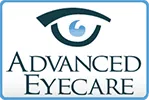
Improving Nystagmus Symptoms with Vision Therapy
Nystagmus causes uncontrollable eye movements that can affect people of any age. Vision therapy can help stabilize eye movements and improves communication between the brain and eyes, making life a little easier for you or your child.
What is Nystagmus?
Nystagmus is a term vision therapists use to describe side-to-side, up-and-down, or circular eye movements. According to MedlinePlus, nystagmus occurs due to a problem with the part of the brain responsible for eye movements.
Symptoms of nystagmus range from mild to severe and can appear during infancy, in early childhood, or in adulthood. Nystagmus can be inherited in some cases. The condition affects 1 in 1,000 people and is the most common type of visual impairment in school-aged children, according to the Nystagmus Network.
You may be more likely to develop an acquired form of the condition if you have severe nearsightedness or astigmatism, a central nervous system disease, an inner ear disorder or inflammation, albinism, B12 deficiency, or an autoimmune disease. Other causes of nystagmus can include stroke, head injuries, brain tumors, or multiple sclerosis. Heavy alcohol use or side effects from anti-seizure medications or other drugs, can increase your risk for nystagmus as well.
How Nystagmus Affects Vision
Involuntary eye movements cause several vision issues, including:
- Blurry Vision
- Shaky Vision
- Light Sensitivity
- Dizziness
- Vertigo
- Poor Coordination
- Trouble Seeing Well in the Dark
Nystagmus can have a profound effect on your life and make it difficult to read, drive, keep your balance, write legibly, judge distances, or play sports. Eyestrain and headaches can become chronic complaints for people with nystagmus, as can fatigue when reading for short periods. Tilting or turning your head may make it a little easier to see, although holding the head in an unnatural posture could stress the muscles in your neck and shoulders.
The condition may affect your child's school performance. A child who has untreated nystagmus might fall behind in his or her schoolwork, struggle to complete homework, or act out during class due to frustration. Often, adults and other children don't understand the condition, which can lead to feelings of depression, shame, and anxiety.
Vision Therapy Can Improve Your Symptoms
Seeing well involves constant, consistent information between the brain and eyes. When your eyes never stop moving, the brain doesn't receive the same information from each eye. As a result, you see blurry or shaky images rather than stable ones.
Vision therapy enhances brain-eye coordination and improves control of eye movements. You or your child will work with a vision therapist, a specially-trained optometrist who treats vision issues like nystagmus. During therapy, games, activities, special lenses and other vision tools help:
- Reset the Connection Between the Brain and the Eyes
- Stop or Slow Involuntary Eye Movements
- Coordinate Eye Movements to Ensure that Both Eyes Work Together
- Improve Coordination and Depth Perception
In a case report published in Vision Development & Rehabilitation, researchers discussed the benefits of vision therapy for a 4-year-old child with nystagmus. The boy couldn't stand or walk and had difficulty making eye contact. After a three-phase vision therapy program, he was finally able to walk and stand on his own.
Vision therapy treatment plans vary depending on the diagnosis and the severity of the vision issues but may include:
- An Eyeglasses Prescription. Ensuring that you or your child have appropriate vision correction may make seeing a little easier. Your vision therapist may recommend adding prism lenses to your glasses. The lenses change the way light rays bend as they enter the eye, improving eye alignment.
- Activities. You'll participate in activities designed to improve eye focus and control. You might play a game that involves tracking and catching a dangling ball or put pegs in a rotating board.
- Computer Games. Computer games offer a fun way to improve vision. During therapy sessions, you might pop a balloon on the screen simply by looking at the correct color, play a shooting game that helps you track targets with your eyes, or make your way through a virtual maze.
Do you or a family member have vision problems due to nystagmus? Contact our office to schedule a visit with the vision therapist.
Sources:
MedlinePlus: Nystagmus, 1/23/2023
https://medlineplus.gov/ency/article/003037.htm
Nystagmus Network: What Is Nystagmus?
https://nystagmusnetwork.org/information/nystagmus
Nystagmus: American Optometric Association
https://www.aoa.org/healthy-eyes/eye-and-vision-conditions/nystagmus
Vision Therapy & Rehabilitation: A Journey Toward 1st Step of Life, 12/2020
https://cdn.ymaws.com/www.covd.org/resource/resmgr/vdr/vdr_6_4/vdr6-4_casereport_pandey_web.pdf
